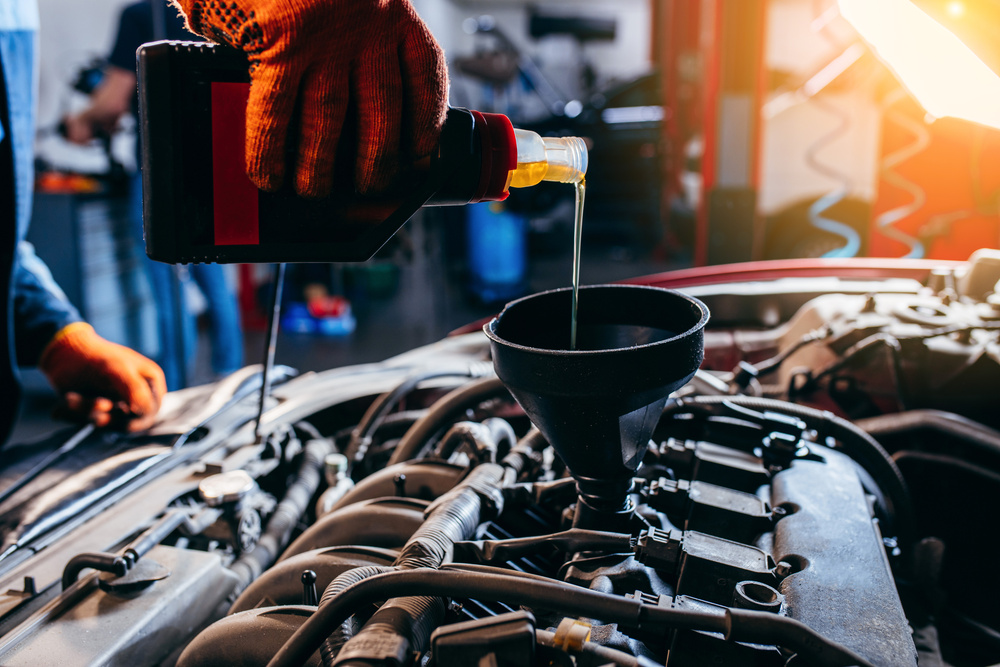Diesel is preferred over gasoline for three primary reasons: better torque output, long-term durability, and fuel economy. Research shows that diesel engines are typically 20%-35% more fuel efficient than similarly sized gasoline engines, allowing diesel cars to travel greater distances on a single fuel tank.
However, diesel engines require additional care and maintenance to function properly. Without routine maintenance, you increase the likelihood of early breakdowns and costly repairs.
Don’t fret; this article will outline what you should know for servicing your diesel-powered vehicle.
Wash Your Vehicle And Clean Your Engine
It may come as a surprise to some, but regular cleaning goes a long way. Yes, it may seem tedious, but it’s easier to clean than to replace a failing part due to a thick layer of dirt and dust. Keep in mind that allowing dirt to build up on your engine’s parts will reduce their lifespan and even your vehicle’s fuel economy. Road salt, which amplifies rust and corrosion, can also accelerate the wear of your engine’s components if you reside in a region with harsh winters.
However, if you need to replace your engine, you must ensure that the part you’re purchasing is 100% complete from factory. As car parts aren’t relatively economical, you’d want to save as much as possible by doing this.
Regularly Check Your Oil

Not changing the oil is the quickest way to destroy a diesel engine. A vehicle’s engine might take a beating if the owner doesn’t change the oil every three months. The longevity and efficiency of the system can be maximized by filling it out every few months.
Oil changes should be performed every 5,000 miles or such. Engine maintenance may be more frequent if used for high-torque tasks such as hauling or lifting. Keep an eye on the fluid levels and the consistency of the lubricant, just like you would with a gas-powered engine.
Once electric vehicles (EVs) become more prevalent than regular petrol or diesel vehicles, this will no longer be a concern; however, according to a manufacturer’s insights, this may still be a pipe dream today.
Inspect Your Air Filter
If you’re already checking things out beneath the hood, you might as well inspect the air filter. An air filter, often a rectangular box, can be found under the hood toward the front of the engine compartment in most automobiles, diesel or otherwise.
If your air filter is dirty, your engine may have difficulties, requiring you to consume more gasoline to achieve the same speed and acceleration you’re used to. If you drive 12,000 miles and notice a loss of power, sluggish acceleration, or premature engine wear, you should inspect and possibly replace your air filter.
Inspect Your Fuel Filters
The fuel filter in a vehicle is typically located between the tank and the engine. In contrast, a diesel engine may have a second fuel filter between the transfer pump and the fuel injectors. Diesel engines often have two fuel filters because the fuel absorbs more water from condensation in the tank than gasoline engines.
Have the filter replaced every 10,000 – 15,000 miles. The earlier, the better; don’t wait for your engine to stall before you take action.
Check Your Radiator Regularly
When driving for long periods, diesel engines can generate a great deal of heat, and a defective radiator could decrease heat transfer, resulting in overheating. Overheating can deform engine components such as cylinders and gasket seals, resulting in engine failure. Prevent it from happening by regularly checking and replacing the regular coolant and radiator fluids.
On average, these refills should be inspected every 40,000 – 60,000 miles, but you should check your manufacturer’s instructions regarding your vehicle’s model.
Pay Attention To Your Exhaust System
The maintenance of your vehicle’s exhaust is essential. To comply with the Environmental Protection Agency emissions rules, diesel exhaust fluid systems and diesel particulate filters (DPF) are being continuously developed, increasing the complexity of exhaust systems.
You must pay close attention to your DPF regeneration, which happens when the filter’s particles are heated to combustion and transformed into ash and carbon dioxide. If regeneration occurs more frequently, you have to visit a mechanic and let them examine your vehicle to find the source.
Lastly, ensure that your diesel exhaust fluid tank (DEF) is always full, as running out will reduce engine performance.
Takeaway
Maintaining your diesel engine is one of the most effective ways to save time and money. It helps your parts last longer, your engine perform more effectively, and your gasoline burn efficiently. By adhering to a tight maintenance schedule consisting of inspections and fuel and filter changes, you can ensure that your engine lasts as long as possible.






